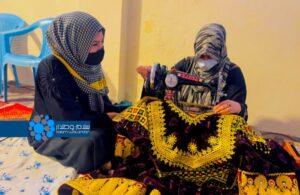KABUL (SW) – Health officials say at least 9,000 people have been infected with hepatitis in the country.
Officials at the Ministry of Public Health said this in Thursday in the program to mark the World Anti-Hepatitis Day in this ministry. They said that the number of people suffering from the hepatitis virus has increased in Afghanistan this year.
According to the officials, in the first six months of 2023, nearly 9000 people have contracted the virus while the number of people suffering from this disease in 2022 was around 8300.
Basmullah Popel, head of communicable disease control in the Ministry of Public Health, said that the disease was spreading in Afghanistan and the facilities of this ministry are not enough to treat patients.
He added: “The PCR tests are ready to diagnose hepatitis B and C only in six provinces of Kabul, Kandahar, Paktia, Herat, Balkh and Nangarhar only.”
Reza Al-Wadal, the representative of the World Health Organization in Afghanistan, said in this meeting that until now, no accurate survey has been conducted to determine the number of patients in Afghanistan. He added: “One million people are infected with hepatitis B and C. There are facilities in Afghanistan, let them come and test more people so that they can be treated.”
According to the statistics of the Ministry of Public Health, those suffering from the disease include common people and drug addicts.
Habibullah Akhundzada Hamed, head of health services supply of the Ministry of Public Health, said: “From 2017 to 2023, 427,647 people have contracted hepatitis B and 21,621 people have contracted hepatitis C. We ask WHO and other institutions to provide technical and financial assistance to prevent this disease.”
Agha Mohammad Abid Totakhil, the a director at the Ministry of Public Health, said that in the current year, 30% of patients infected with the “C” type of hepatitis virus have been treated with the financial support of the World Health Organization, and the remaining 70% of the disease has become chronic.
According to the statistics of the Ministry of Public Health, there are now 40 centers for diagnosing the disease in the country, and in the first six months of this year, more than 147,900 people have been tested in these centers, of which 282 people have been treated and 74 others have recovered.
There are five types of hepatitis virus, “A”, “B”, “C”, “D”, “E”, and the types “B” and “C” are known as black jaundice in Afghanistan
ENDS






